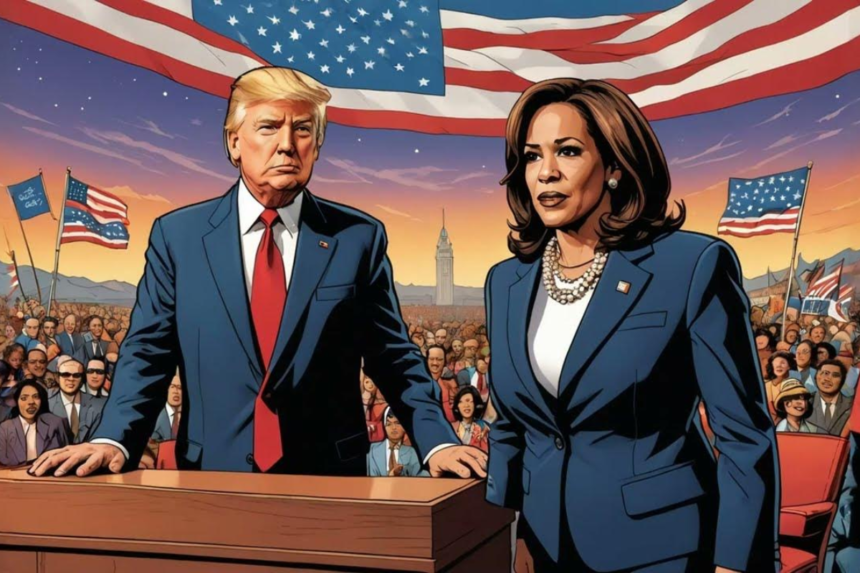The 2024 presidential elections in the United States are set to kick off on Tuesday, with immense stakes at play. The nation finds itself grappling with a deeply divided electorate, pressing social and economic issues, and escalating global geopolitical tensions. The outcome of this election will not only shape the future of the country but will also have far-reaching implications on a global scale. In this article, we delve into the significance of these elections and the factors that could sway voter decisions.
The upcoming election will determine the 47th president of the United States, a position that holds immense influence on the global stage. Candidates and their supporters have deemed this election as one of the most crucial in recent memory, with the very essence of American democracy hanging in the balance. The campaign season has seen unprecedented levels of fundraising, extensive campaign advertisements, and intense media coverage.
Looking back at the historical perspective of U.S. presidential elections, it is evident that the forthcoming election is taking place in a time of unprecedented division and urgency. Key issues such as climate change, healthcare, economic inequality, social justice, and abortion rights have come to the forefront, reflecting a population that is vocal about its needs. The electoral college, the system through which presidents are selected in the U.S., has been a subject of ongoing debate and contention since its inception in the late 1700s.
The Electoral College comprises presidential electors who convene every four years to cast votes for the president and vice president. The number of electoral votes allocated to each state is based on its congressional delegation. To win the presidency, a candidate must secure 270 or more electoral votes. The upcoming election will serve as a test for the polling industry, which faced criticism for underestimating support for certain candidates in previous elections.
The candidates in the 2024 election include incumbent Vice President Kamala Harris, former President Donald Trump, Libertarian candidate Chase Oliver, Green-Rainbow party candidate Jill Stein, and independent candidate Cornel West. The current polls show a tight race between Harris and Trump, with swing states likely to determine the outcome of the electoral college.
One key issue that could sway voter decisions in this election is abortion rights. Following the Supreme Court’s decision to overturn Roe v. Wade, several states have enacted or proposed restrictive abortion laws. The candidates’ positions on abortion rights could play a significant role in shaping voter preferences.
As the nation awaits the outcome of the election, the question remains: will Donald Trump become the second individual after Grover Cleveland to reclaim the presidency after losing it, or will Kamala Harris make history as the first woman to occupy the White House after serving as Vice President? The decision rests in the hands of the American electorate.






